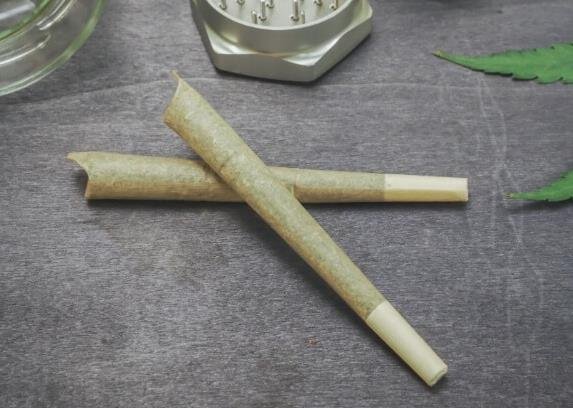A batch of cannabis pre-rolls purchased in New Jersey and sent for independent testing has raised serious concerns about product safety, lab oversight, and potency mislabeling. According to a report released by the Safe Leaf Society, several pre-rolls sold at licensed dispensaries contained microbial levels far above the legal limit—some up to five times higher.
That’s not all. The same study also found that many pre-rolls contained less THC than the packaging claimed, further shaking consumer trust in what’s supposed to be a regulated market.
What the Study Actually Found
The Safe Leaf Society, a consumer watchdog group, sent secret shoppers to buy 25 pre-rolls from licensed marijuana retailers across New Jersey. These samples were then sent for independent testing.
Seven of the 25 pre-rolls tested had microbial contamination above legal thresholds. According to New Jersey’s Cannabis Regulatory Commission (CRC), the legal limit is 100,000 colony-forming units per gram. Two pre-rolls clocked in at five times that amount.
And it wasn’t just one kind of bug either. We’re talking yeast, mold, and even bacteria—exactly the kind of stuff medical users especially should be avoiding.
One sentence worth pausing on:
“Mislabeled cannabis is equivalent to a pharmacy providing the wrong prescription or a restaurant regularly serving moldy food.”
That’s what Andrea Raible, co-founder of the Safe Leaf Society, told the Asbury Park Press. She’s not wrong.

Potency Problem: THC Content Lower Than Advertised
Beyond the mold, there’s another issue—THC inflation. Products often promise high potency to justify steep prices, but the study shows that many pre-rolls just don’t deliver.
That’s frustrating for recreational users and downright dangerous for medical patients who rely on accurate dosing.
Some samples labeled as having 25% THC tested as low as 17%. That might not sound like a huge gap to casual users, but it’s a big deal in medical contexts, where patients use specific strains and dosages to manage symptoms.
One-sentence paragraph incoming:
It’s not just about getting high—it’s about getting well.
Who’s Testing the Testers?
New Jersey has six licensed cannabis testing labs. That might sound like enough, but the reality is more complicated.
The state’s cannabis market hit $1 billion last year. More products mean more pressure on labs, more room for error, and, let’s be honest, more chances for bad actors to cut corners.
Here’s where things get tricky:
- Some labs might be inflating potency numbers to keep clients happy.
- Others might be passing contaminated products that should fail.
- There’s little transparency about how labs are vetted and monitored.
And right now, the CRC is investigating whether the products tested by the Safe Leaf Society actually came from lots that had passed official lab scrutiny. There’s a lot of he-said-she-said floating around.
Table: How the Products Measured Up
Here’s a breakdown of key findings from the Safe Leaf Society study.
| Metric | Legal Limit (NJ CRC) | Worst Result Found | Number of Samples Affected |
|---|---|---|---|
| Total Microbial Load | 100,000 CFU/g | 500,000 CFU/g | 7 of 25 |
| Yeast & Mold Levels | 10,000 CFU/g | 50,000 CFU/g | 2 of 25 |
| THC Claimed vs Actual | 25% (claimed) | 17% (tested) | 8 of 25 |
The big question is: How did these products make it through testing and onto store shelves?
A Bigger Industry Issue
New Jersey’s not alone. Reports of inconsistent cannabis testing have surfaced across the U.S.—including in California, New York, and Colorado.
The issue isn’t just contamination. It’s also about marketing. Consumers are drawn to high THC numbers like moths to a flame, and producers know it. That creates an incentive to fudge the numbers. Some producers even shop around for labs that give them the highest THC results.
In Colorado, an investigation found one lab issuing inflated THC results to multiple growers. New York has seen its share of similar complaints, with one state lab shut down over inaccurate potency testing just last year.
It’s a pattern—and a red flag.
What the Regulators Are Saying
Chris Riggs, executive director of the CRC, responded quickly to the Safe Leaf report. He said the agency is actively looking into the lab discrepancy allegations and trying to determine whether the pre-rolls tested were indeed previously approved for sale.
His statement also hinted at potential enforcement if violations are confirmed.
But critics say the CRC needs to do more. Consumer groups are calling for:
- More frequent lab audits
- Greater transparency in test results
- Independent spot-checking by third-party labs
- Penalties for labs and producers found falsifying data
One industry insider, speaking on condition of anonymity, said: “There’s a race to the bottom happening. Everyone wants higher numbers, faster turnaround, cheaper testing. Quality is suffering.”
So What Happens Next?
Right now, everything’s up in the air. The CRC’s investigation is ongoing. The Safe Leaf Society is calling for more public involvement. And the cannabis community in New Jersey—especially medical users—is demanding answers.
This incident may be a local flare-up, but it touches on national concerns about cannabis quality, safety, and honesty in a booming but still maturing industry.
The stakes are high. So is the frustration.
